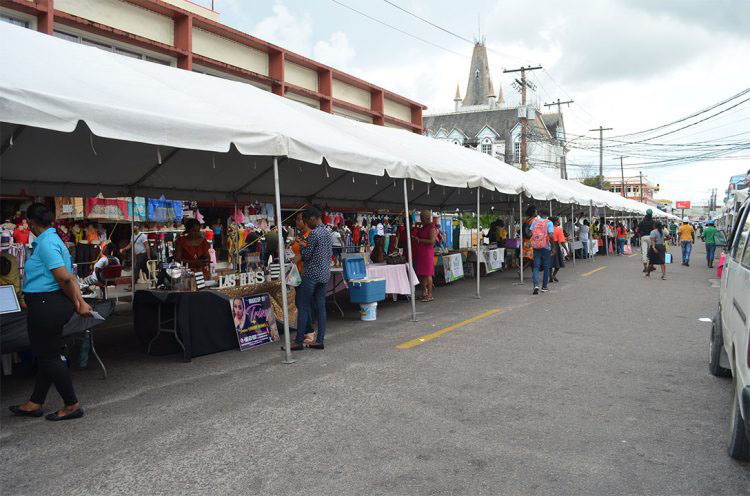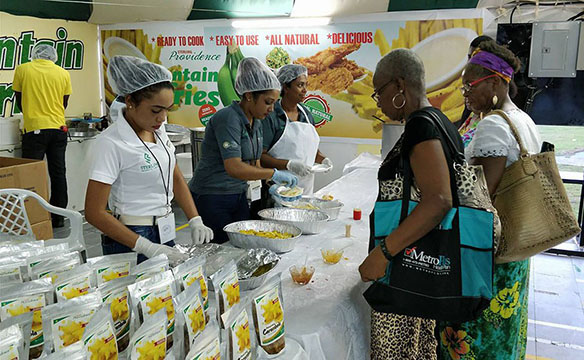Perhaps unsurprisingly, most of the small business ventures with which we have established excellent relationships over the past five years or so and which have been the subjects of weekly reports in the Stabroek Business appear to have ‘gone to ground,’ so to speak, that is to say that what used to be the practice of regularly “checking in” with the newspaper has disappeared. This, frankly, does not surprise us given the suddenness with which COVID-19 descended and the haste with which many of our small business owners had to adjust both their business and their living arrangements.

One imagines that that will be the case for some time and even this early we anticipate that the road ahead will not be easy for some. Most of the small businesses with which we have established relationships are essentially ‘turnover’ enterprises, that is to say they produce, sell and afterwards plough their earnings right back into the production process. It is, simultaneously, a treadmill and a carousel – a punishing process in which if you pause for long you run the risk of getting left behind. Upon reflection, Stabroek Business is enormously proud of the no-cost promotion which we have given to the considerable numbers of businesses that have grown continually over the years, some of them to the point where they have overcome considerable hurdles to have their brands accepted on local and international markets. Our experiences with small businesses and their owners have led us to individuals and groups involved in agro-processing, beverage manufacturing, craft, fashion design, body beauty, baked products and a host of others. We have engaged with groups that include Women in Business and the Guyana Art and Craft Association. Arising out of these experiences we contend that women are (by a country mile) the leaders in the local small business sector. They are inventive, tough, tenacious, determined and outstandingly creative.
While a great deal of credit accrues to the Small Business Bureau for the growth, in recent years, of the small business sector and particularly women-led small businesses, it is clear that the Bureau continues not to benefit from resources proportionate to the extent of its mission. More than that, key official decisions that have been critical to the further growth of small businesses are frequently stymied by sloth and bureaucracy, one of the better-remembered ones being the still unaccomplished objective of assigning small businesses 20% of state contracts.
Interestingly, at a time when the slowing down of private sector commercial activity has resulted in what we are told are significant numbers of jobs lost, those losses may well have been, to a greater or lesser degree offset by jobs gained from small business access to some potentially lucrative categories of state contracts.
One of the regrettable consequences of COVID-19 for small businesses has been the constraints that have been placed on its marketing initiatives through programmes like the public/private sector UncappeD event and the Farmers’ Markets that have customarily been run by the Guyana Marketing Corporation. Here it has to be said that if there is to be a greater measure of success in public/private sector partnerships such as those (for example) between the GMC and the private farmers and other producers, then there is need to remove, what so often are, the obstacles afforded by the state system where, all too often, institutions like key offices and Boards stymie forward movement on account of the tedious and sometimes altogether counterproductive nature of the state bureaucracy. Here, we are by no means advocating the abandonment of accountability. The reality is, however, that if there is to be meaningful public/private sector partnership in the small business sector, there will have to be a re-evaluation of the ground rules if we are to ensure that progress is not strangled by bureaucracy.
The small business sector faces some daunting challenges at this time. After having seen their businesses shrink dramatically in recent months there is now the very real possibility the many of them will probably not survive. We, however, have seen their tenacity and determination and we have little doubt that many of them will rise again. The point cannot, however, be made too strongly that huge chunks of the country’s economy will, at the end of the day, be left ‘on the ropes’ so to speak, after COVID-19 has come and gone. Small businesses will be casting around for help when that time comes. Both government and the banking sector should, even at this stage, be anticipating this and should be assigning the right minds (in both the public and private sectors) to begin to design initiatives that are fashioned to help small businesses rise again. There must be none of the sloth and prevarication characteristic of the state sector or the mountains of preconditions commonplace amongst the commercial banks before small businesses are able to breathe again.





